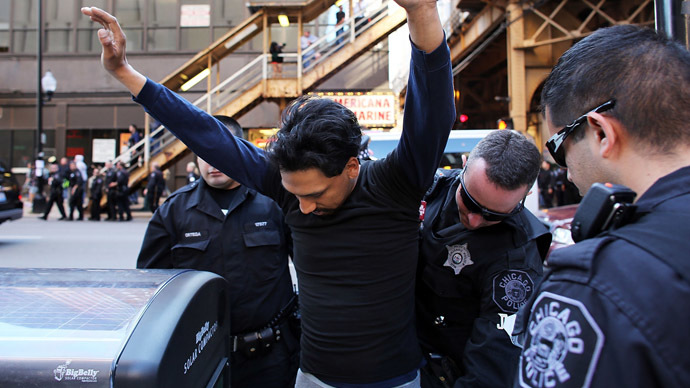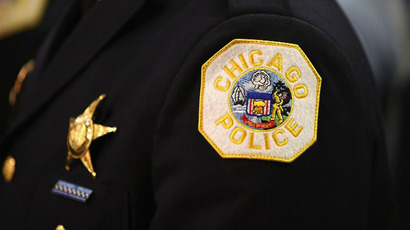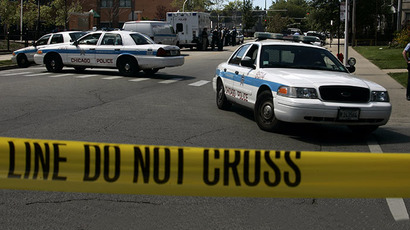Illinois strikes down law that prohibited First Amendment right to record

The Illinois Supreme Court has struck down the state’s broad eavesdropping law that prohibited the audio recording of any person, public or not, without consent. Opponents of the law said it chilled free speech and the ability to watch law enforcement.
The state Supreme Court ruled that the law “criminalizes a wide range of innocent conduct,” the Chicago Tribune reported.
"The statute criminalizes the recording of conversations that cannot be deemed private: a loud argument on the street, a political debate on a college quad, yelling fans at an athletic event, or any conversation loud enough that the speakers should expect to be heard by others," the court said in its ruling.
"None of these examples implicate privacy interests, yet the statute makes it a felony to audio record each one. Judged in terms of the legislative purpose of protecting conversational privacy, the statute’s scope is simply too broad.”
The case that spurred the law’s challenge involved Annabel Melongo, who recorded three phone conversations she had with a court reporter supervisor in Cook County. Melongo was attempting to correct an error in a court transcript, and later posted audio of the phone discussions on a website she created about her computer-tampering case.
Prosecutors charged Melongo in 2010 with six counts of eavesdropping for the non-consensual recordings. She spent over 20 months in jail, as she could not make bail.
The jury in her trial deadlocked in 2011. A year later, her attorneys filed a motion arguing the state’s Eavesdropping Act was unconstitutional. Judge Steven J. Goebel agreed in 2012, throwing out the charges against Melongo. Prosecutors then filed an appeal.
Melongo’s attorneys argued before the state Supreme Court that the law was overly broad, and gave government officials the opportunity to deny First Amendment rights.
“It gives government officials and public actors unilateral and unfettered right to deny the press or citizens the right to record, gather information and disseminate information about the government,” Melongo’s attorney Gabriel Plotkin said.
He said that by demanding consent to record any public actions, the law could be used by, say, a police officer to tell a citizen, “you can’t watch what we’re doing, pay no attention to what your government is doing.”
The state Legislature had designed the law to protect “conversational privacy,” Assistant State Attorney Alan Spellberg said in front of the Court, all while keeping in place safeguards for constitutional rights.
Spellberg said Melongo had “negate(d) the privacy rights of the other members of the conversation,” adding that the question in the case was one of legislative policy, thus beyond the Court’s constitutional role.
The state Supreme Court’s decision comes two years after a federal appeals court found the eavesdropping law’s ban on recording police officers in public to be unconstitutional. The court’s ruling threw out that part of the law just before Chicago hosted the 2012 NATO summit.
Last week, an Illinois state appeals court ruled that misconduct complaints against Chicago police are public record and cannot be kept secret.
The ruling rejected law enforcement’s claim that the complaints were exempt from the Illinois Freedom of Information Act. As a result, files alleging misconduct by Chicago police, as well as files naming police officers who’ve received the most complaints, must be released to the public when requested.
The court sided with law enforcement in one situation, though, ruling that should a citizen complaint lead to some kind of disciplinary action against an officer, records from that process can still be kept confidential.














